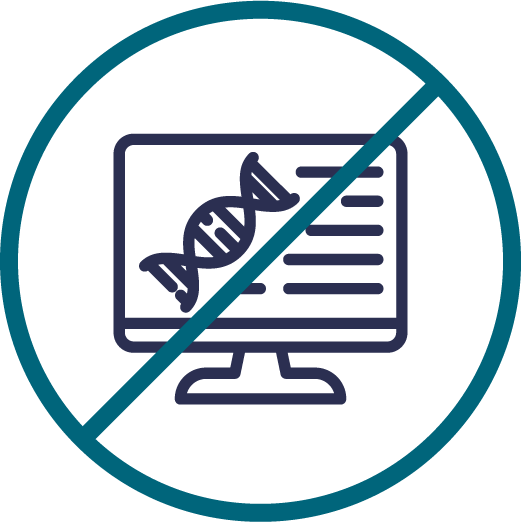What is infertility?
Infertility is defined as the inability to conceive a child after one year of regular, unprotected sexual intercourse. For women aged 35 and older, the timeframe used for diagnosis may be shortened to six months. Infertility can be attributed to a range of physiological issues affecting either partner and may involve problems with sperm or egg production, structural issues in the reproductive system, or hormonal imbalances.
What are the causes of infertility?
Infertility can be caused by a variety of factors that affect either the male or female partner, or both. Common causes include:
(1)
Ovulatory Disorders: Issues with ovulation are a leading cause of infertility in women, including conditions like polycystic ovary syndrome (PCOS) and premature ovarian insufficiency.
(2)
Sperm Disorders: Low sperm count, poor sperm mobility (motility), or abnormalities in sperm size and shape can impede pregnancy.
(3)
Fallopian Tube Damage or Blockage: Often resulting from inflammation of the fallopian tube (salpingitis). This can be caused by pelvic inflammatory disease, usually due to sexually transmitted infections.
(4)
Endometriosis: Where tissue similar to the lining inside the uterus grows outside of it, potentially affecting the function of the ovaries, uterus, and fallopian tubes.
(5)
Uterine or Cervical Abnormalities: Including abnormalities with the cervix, polyps in the uterus, or the shape of the uterus.
(6)
Sperm Disorders: Low sperm count, poor sperm mobility (motility), or abnormalities in sperm size and shape can impede pregnancy.
How to treat male infertility?
Treating male infertility typically involves addressing underlying health issues and making lifestyle changes. Common treatments include:
(1)
Medication and Hormone Treatments: Medications can address issues like hormonal imbalances or infections that affect sperm production and health.
(2)
Surgical Options: Procedures can correct obstructions or varicoceles (enlarged veins in the scrotum) that impact sperm production or quality.
(3)
Assisted Reproductive Technology (ART): Techniques such as in vitro fertilization (IVF) or intracytoplasmic sperm injection (ICSI) can be used when natural conception is challenging.
(4)
Lifestyle Changes: Improving diet, reducing alcohol and tobacco use, and managing stress can also enhance fertility. Consultation with a fertility specialist is essential to determine the most appropriate approach based on the specific cause of infertility.
How to treat female infertility?
Treating female infertility often involves a combination of medical treatments and lifestyle changes:
(1)
Fertility Drugs: Medications like clomiphene citrate and gonadotropins can stimulate ovulation and are often the first line of treatment.
(2)
Surgical Procedures: Surgery can address issues like endometriosis, fibroids, or blocked fallopian tubes, which can affect fertility.
(3)
Assisted Reproductive Technologies (ART): Techniques such as in vitro fertilization (IVF) and intrauterine insemination (IUI) are common for overcoming various fertility issues.
(4)
Lifestyle Changes: Modifying diet, reducing stress, and maintaining a healthy weight can improve the chances of conception.
(5)
Hormonal Therapy: This may be used to correct hormonal imbalances that can impair fertility. Each treatment approach is tailored to the individual's specific circumstances, and a healthcare provider can offer guidance on the best strategy based on the underlying cause of infertility.
What is assisted reproductive technologies (ART)?
Assisted Reproductive Technologies (ART) are medical procedures used to address infertility. These technologies involve manipulating sperm and eggs or embryos outside the body to enhance the chances of pregnancy. Common ART methods include in vitro fertilization (IVF), where eggs are fertilized by sperm in a lab, and intrauterine insemination (IUI), where sperm is directly placed into the uterus. ART can also involve third-party assistance, such as using donor eggs, donor sperm, or surrogacy. These techniques are often used when other fertility treatments have not been successful.
What is the IUI treatment?
Intrauterine insemination (IUI) is a fertility treatment that involves placing sperm directly into a woman's uterus to facilitate fertilization. The main purpose of IUI is to increase the number of sperm that reach the fallopian tubes and subsequently increase the chance of fertilization.
The average success rate of IUI varies significantly depending on several factors, including the age of the woman, the underlying fertility issues present, and the use of fertility medications. Generally, the success rates per cycle can range from as low as 5% to as high as 20%. For women under the age of 35, the success rates tend to be on the higher end of this range.
What is the IVF treatment?
In Vitro Fertilization (IVF) is a complex process where an egg is retrieved from a woman's ovaries and fertilized by sperm in a lab. The fertilized egg, or embryo, is then transferred to the woman's uterus with the aim of establishing a successful pregnancy. The success rate of IVF depends on various factors, including the age of the woman, underlying fertility issues, and the specific protocols used. On average, the success rates range from 20% to 40% per cycle, with higher success rates typically observed in younger women.
What are the procedures of IVF treatment?
The IVF (In Vitro Fertilization) treatment process typically involves several steps:
(1)
Ovarian Stimulation: Medications are administered to stimulate the ovaries to produce multiple eggs.
(2)
Egg Retrieval: Eggs are collected from the ovaries using a minor surgical procedure, often under sedation.
(3)
Fertilization: The retrieved eggs are fertilized in a lab with sperm.
(4)
Embryo Culture: Fertilized eggs develop into embryos, which are monitored for growth and health.
(5)
Embryo Transfer: One or more embryos are implanted into the uterus. This process spans several weeks, with each step requiring careful monitoring and timing.
Does IVF treatment hurt?
IVF treatments can involve discomfort or pain, primarily during the egg retrieval process. This step often requires sedation or anesthesia and can lead to feelings of cramping or bloating. The actual embryo transfer is usually painless, though some women may experience mild cramping. Most pain or discomfort associated with IVF can be managed with medication prescribed by a healthcare provider.















